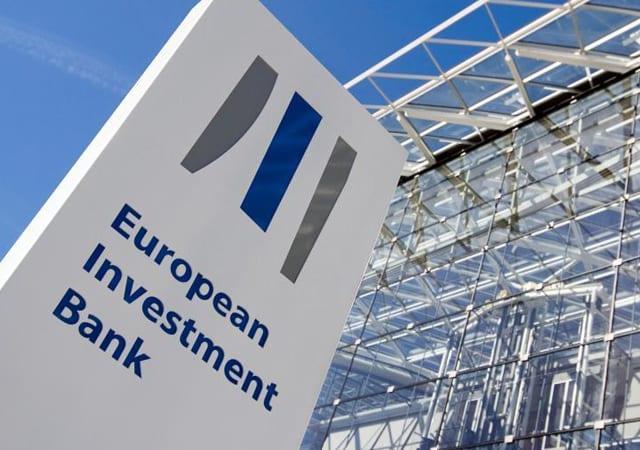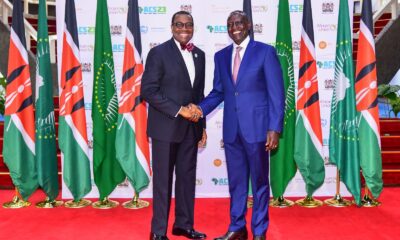The second Micro-Grid Academy Young Talent of the Year Award today acknowledged energy innovation from across Africa that can accelerate the green transition and improve economic opportunities.
Backed by the RES4Africa Foundation, Enel Green Power and the European Investment Bank the yearly competition encourages young energy entrepreneurs from across the continent to develop projects that expand enegy access, enable greater use of renewable eneryg and accelerate sustainability.
Young finalists from across West, East and Southern Africa presented their innovative ideas to expert judges from the RES4Africa Foundation, Enel Green Power and the European Investment Bank.
The 2021 edition of the Micro-Grid Academy Young Talent of the Year Award has arrived to its final steps. Today, the eight young African innovators selected as finalists out of nearly 50 applicants presented to the international public their disruptive projects for the first time. The presentation took place during the event Public Competition for the MGA Young Talent of the Year 2021 finalists, and represents a preparatory step for the announcement of the three winners, that will be held the 28th of September in the framework of the Precop26.
The three entities strongly believe that renewables and innovation will be the response to the climate changes and energy deficit that Africa faces. In this deeply needed path towards its just energy transition, the continent can and must rely on one of its most precious resources : its youth. With this joint initiative, RES4Africa, Enel Green Power and the European Investment Bank put together their efforts to support those young people from all Africa countries who are committed and motivate to create a real change in their communities.
These are the finalists identified by the selection committee, who publicly presented their project ideas and among which there are the three future winners:
• Adekoyejo Ifeoluwapo Kuye, 26 years old from Nigeria, introduced a project focused on a sustainable cold chain for food;
• Alex Makalliwa, 31 from Kenya, presented his initiative of electrical tricycles for heavy loads in Nairobi;
• Benson Kibiti, 34 also from Kenya, performed an overview on an PV-powered trolley for heating up food and providing power;
• Lucas Filipe Tamele Junior, 24 from Mozambique, focused on waste management, biofertilizers and biogas;
• Matjaka Ketsi from Lesotho is 28, and presented an initiative aiming at building solar-powered Learning Centres for rural communities;
• Shedrack Charles Mkwepu is instead 26 and comes from Tanzania: he designed a system that allows farmers to control irrigation and other soil parametres from a mobile phone;
• Carol Ofafa, 32 from Kenya, proposed the installation of a PV system for health facilities;
• Kumbuso Joshua Nyoni, 34 from Zambia, envision an integrated Water-Food-Energy model for PV power and a water pumping system.
The webinar benefitted from the presence of Salvatore Bernabei, President of RES4Africa and Head of Enel Global Power Generation, as well as of Maria Shaw Barragan, Director of Lending in Africa, Caribbean, Pacific, Asia and Latin America, European Investment Bank. They introduced the objectives of the MGA Young Talent of the Year Award, while reflecting upon youth’s impact on the just energy transition.
Moreover, after the finalists’ presentation, a final feedback was provided, with closing remarks, by Roberto Vigotti, Secretary General at RES4Africa Foundation, Carmelo Cocuzza, Head of Corporates Unit, European Investment Bank, and Silvia Piana, Head of Regulatory Affairs Africa, Asia and Australia Area at Enel Green Power.
“The ability to generate innovation will be a fundamental driver to pave the way for a transformation that goes well beyond the dynamic of the Energy sector” commented Salvatore Bernabei “We are here give voice and visibility to young talents, innovators, entrepreneurs promoting the best innovative ideas to stimulate socio-economic progress from within and free the creativity of the younger generations in designing the Africa of tomorrow”.
“Increasing energy access and enabling more sustainable energy use is crucial to unlock opportunities for communities across Africa. The finalists in this year’s Micro-Grid Academy Young Talent Awards all demonstrate inspirational and innovative thinking that combined world-class energy expertise with unparalleled understanding of local energy needs and all deserve to win. The European Investment Bank is pleased to join RES4Africa and Enel Green Power to support talented young innovators and encourage them to become green energy leaders of the future.” said Maria Shaw-Barragan, European Investment Bank Director for Global Partners.
RES4Africa Foundation (Renewable Energy Solutions for Africa) envisions the sustainable transformation of Africa’s electricity systems to ensure reliable and affordable electricity access for all, enabling the continent to achieve its full, resilient, inclusive and sustainable development. The Foundation’s mission is to create favourable conditions for scaling up investments in clean energy technologies to accelerate the continent’s just energy transition and transformation.



 News3 weeks ago
News3 weeks ago


 Business3 weeks ago
Business3 weeks ago


 Technology3 weeks ago
Technology3 weeks ago
 Investment3 weeks ago
Investment3 weeks ago


 Banking Sector3 weeks ago
Banking Sector3 weeks ago
 Banking Sector3 weeks ago
Banking Sector3 weeks ago
 Appointments3 weeks ago
Appointments3 weeks ago
 Investment3 weeks ago
Investment3 weeks ago

















